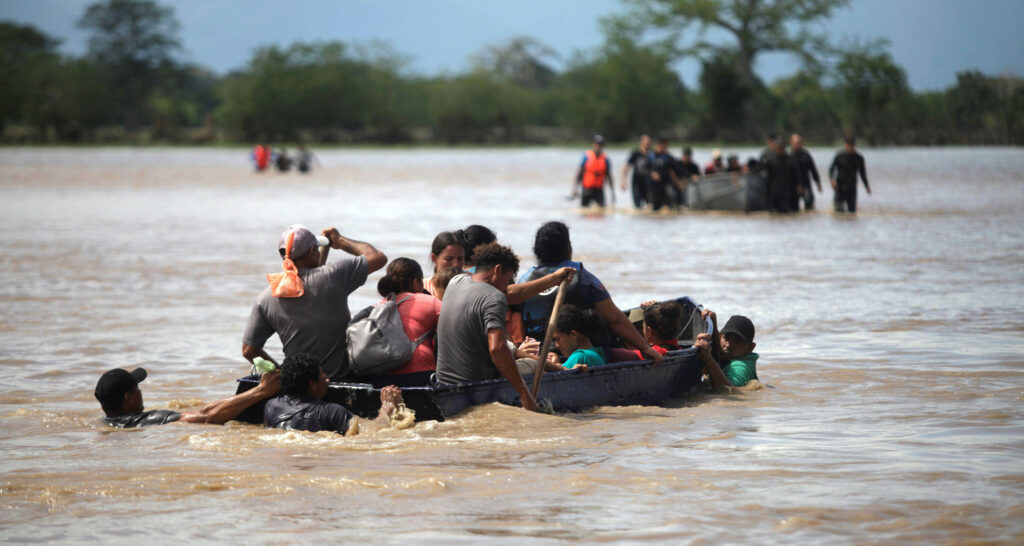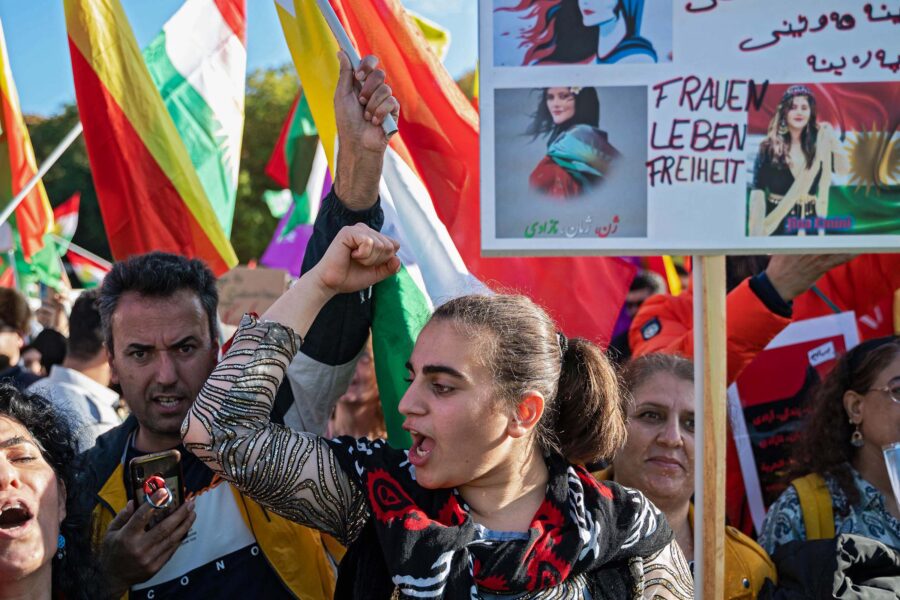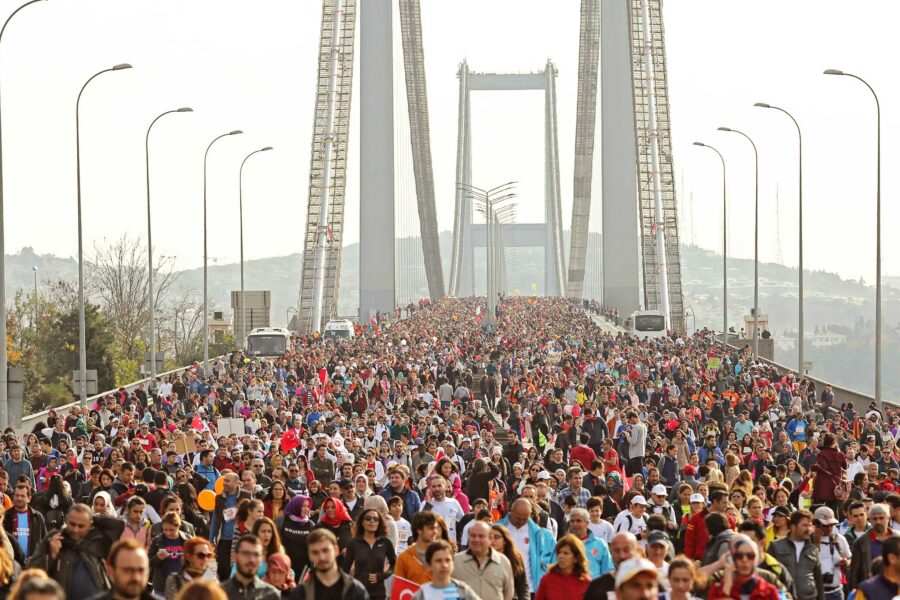On the brink of the abyss
As the UN Secretary-General warns, humanity is facing a cascade of crises. COP26 will be the moment of truth for climate and all countries must step up
Climate — Global, Latin America and the Caribbean

On the third Tuesday of September this year, as is the case every year, the 76th session of the United Nations General Assembly began in New York. Secretary-General António Guterres opened the high-level segment, which included heads of state, heads of government and foreign ministers, with a dramatic speech:
“I am here to sound the alarm: the world must wake up. We are on the edge of an abyss – and moving in the wrong direction. Our world has never been more threatened. Or more divided. We face the greatest cascade of crises in our lifetimes. The COVID-19 pandemic has supersized glaring inequalities. The climate crisis is pummeling the planet. Upheaval from Afghanistan to Ethiopia to Yemen and beyond has thwarted peace. A surge of mistrust and misinformation is polarizing people and paralyzing societies. Human rights are under fire. Science is under assault. And economic lifelines for the most vulnerable are coming too little and too late – if they come at all. Solidarity is missing in action – just when we need it most.”
For Guterres – uniquely placed to appreciate the global situation as a whole – the current landscape is characterized by six gaps or divisions that must be closed to achieve a better world:
- the gap of peace
- the gap of climate
- the division between rich and poor
- gender inequality
- the digital divide
- the generational breach
His diagnosis is not only dramatic, but grim. Only a renewed multilateralism, which is absent today, can prevent a further deterioration of the global situation.
After reviewing the uneven responses between countries with and without access to vaccines to cope with the COVID-19 crisis, Guterres stressed that the climate crisis is getting worse every day. Of course, every effort must be made to close the six gaps identified in Our Common Agenda. But of the six, the climate emergency is undoubtedly the most urgent – and perhaps the most serious.
The Sixth Assessment Report of the Intergovernmental Panel on Climate Change (IPCC), published in August 2021, confirms that we are in an unprecedented climate emergency. There are records of climatic catastrophes in all regions of the world. However, there is hope. Scientists believe that we still have time to ensure that the global temperature does not rise by more than 1.5°C as agreed within the Paris Agreement of 2015, of which Mexico is a party.
But there is very little time to act. Emissions of greenhouse gases (GHGs) that cause climate change must fall by 45% by 2030, in just eight and a half years’ time. But if countries do not make more efforts to reduce their emissions, and the current trend persists, we will have the opposite: a 16% increase in those emissions by 2030. “That would condemn us to a hellscape of temperature rises of at least 2.7°C above pre-industrial levels,” Guterres warns, meaning more droughts, fires, and floods. To complete this perilous picture, it should be noted that developed countries have not fulfilled their commitment to transfer USD 100 billion a year to developing countries to help them with their climate change mitigation and adaptation programs. According to the Organisation for Economic Co-operation and Development (OECD), there is at least a USD 20 billion deficit.
For this reason, COP26 in November will be the moment of truth. At that meeting, all countries, including Mexico, will have to formalize their nationally determined contributions to reduce their GHG emissions that cause climate change.
The best way to reduce these emissions is to accelerate the energy transition to clean energy, such as solar, wind, and geothermal, since the energy sector accounts for 60% of global emissions. A second action is to make radical changes to countries’ food systems, since they produce 30% of global emissions (indeed, the UN recently convened a special conference on this subject).
It is unrealistic to assume that the major producers and consumers of oil, gas, and coal will cease to do so within the next eight years, even though clean energies are already competing on price with fossil fuels, and their prices are expected to continue to fall. Radical reductions in emissions can only be achieved through a combination of several strategies:
- a gradual shift from fossil energy sources to clean energy, especially at local and community level
- nature-based solutions such as reforestation and mangrove expansion
- maximizing energy efficiency to promote energy savings and avoid waste
- preventing gas leakage, such as methane in oil wells and livestock activities
Mexico is considered as a developing country. Therefore, under Article 2 of the Paris Agreement, it is not obliged to completely eliminate its emissions (that is, to achieve climate neutrality) by 2050, as most developed countries and many developing countries have already committed themselves to. But it has also not shown a greater willingness to increase national efforts to reduce its emissions beyond the commitments announced in 2016.
In practice, Mexico’s current energy policy favors the use of fossil fuels over clean ones. It is a pity, because all the leading economies of the 21st century, including Korea, China, the United States, India, Japan, and the EU countries, are accelerating their energy transition to new sources of clean energy, not only to combat climate change, but also to make their economies more competitive.
It is essential that Mexico sets a date by which it will achieve climate neutrality, be it in 2050 or 2060, and issue a law on the matter. Otherwise, we will remain spectators of the global energy revolution that is now underway. We will continue to live in our ancestral backwardness, contributing little to saving the planet, one of the most important causes of humankind. Mexico will be, to be frank, an irrelevant actor at the international table.





